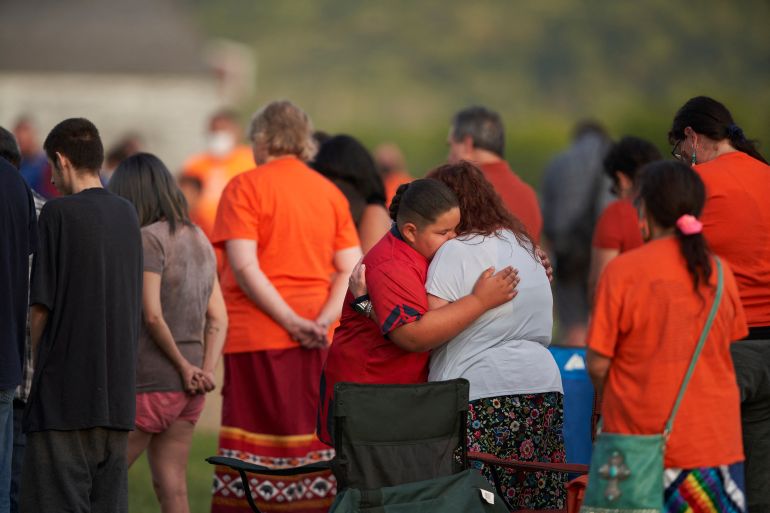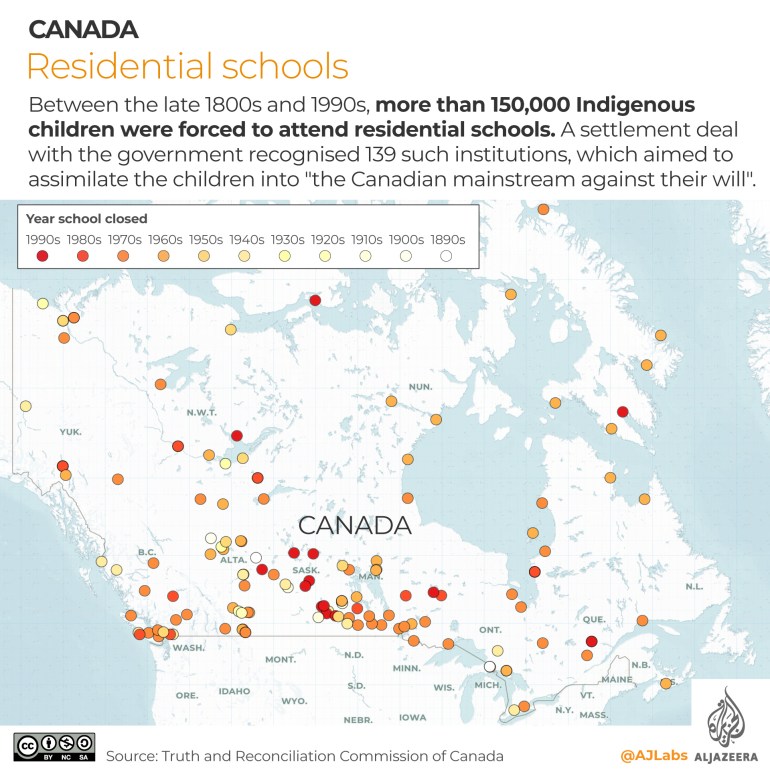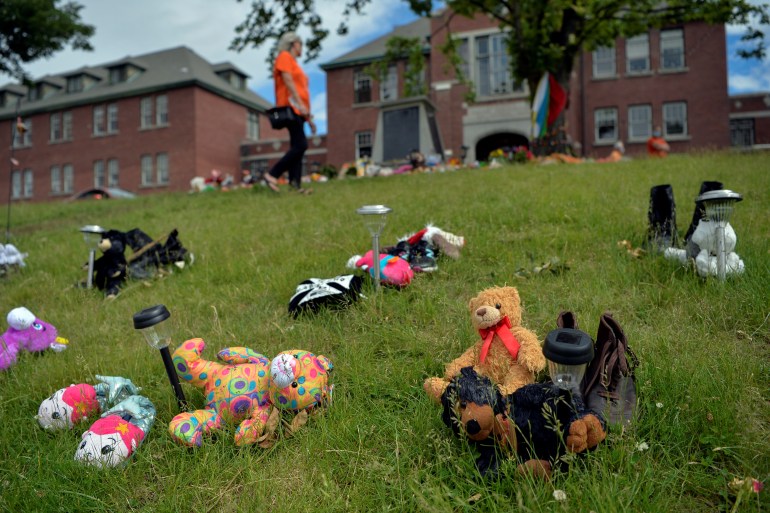Canada: 169 potential graves found at former residential school
First Nation community in Canadian province of Alberta says search uncovered 169 ‘anomalies’ associated with graves.

Warning: The story below contains details of residential schools that may be upsetting. Canada’s Indian Residential School Survivors and Family Crisis Line is available 24 hours a day at 1-866-925-4419.
Another First Nation community in Canada has uncovered potential graves at a former “residential school”, as the country continues to grapple with the scale of the “horror” that occurred at the assimilation institutions that Indigenous children were forced to attend for decades.
Keep reading
list of 3 itemsIndigenous chief to Trudeau: Turn over residential school records
Canada’s Residential School Legacy
Kapawe’no First Nation, about 370km (230 miles) north of Edmonton, Alberta, said on Tuesday that it found “169 anomalies … associated with graves” in a search of the grounds of the former Grouard Mission residential school.
The search was conducted using ground-penetrating radar and drones, the community said.
“The grief of finding our stolen children has opened fresh wounds as we remember the horror and devastation our people felt when our children were forcibly removed from their families and communities to institutions known as residential schools,” said Chief Sydney Halcrow.
“We can now begin our collective healing and honour the lives of these children so they can finally rest in peace.”
Canada forced more than 150,000 First Nations, Inuit, and Metis children to attend residential schools between the late 1800s and 1990s. The children were stripped of their languages and culture, separated from siblings, and subjected to psychological, physical and sexual abuse. Thousands are believed to have died while attending the institutions, which were run by various churches, most notably the Roman Catholic Church.

A federal commission of inquiry into the institutions, known as the Truth and Reconciliation Commission (TRC), concluded in 2015 that Canada’s residential school system amounted to “cultural genocide”.
Hundreds of unmarked graves have been discovered at former residential school sites across Canada since May, when Tk’emlups te Secwepemc First Nation announced it had uncovered 215 unmarked graves at the former Kamloops Indian Residential School.
That discovery fuelled widespread calls for justice and accountability for the victims and survivors of the institutions, as well as demands that the Canadian government release all records pertaining to the facilities.
In late January, Williams Lake First Nation in the western province of British Columbia said preliminary results of a search at St Joseph Mission Residential School uncovered 93 “reflections” that were believed to be unmarked gravesites.
Willie Sellars, the chief of Williams Lake First Nation, said at that time that “a truthful account must be told of the former students’ residential school experience” before any reconciliation can occur in Canada.

The Grouard Mission residential school, also known as St Bernard’s, was run by the Roman Catholic Church between 1894 and 1957, according to the National Centre for Truth and Reconciliation, a research centre at the University of Manitoba. It was closed in 1961.
“The school enrolled a large number of Metis students: by 1949, they accounted for half of the students in residence,” the centre says on its website.
An Indigenous delegation is expected to travel from Canada to Rome at the end of March to meet with Pope Francis to discuss the Roman Catholic Church’s role in the Canadian residential schools system.
In its final report in 2015, the Truth and Reconciliation Commission called on the pope to issue an apology to residential school survivors, their families and communities “for the Roman Catholic Church’s role in the spiritual, cultural, emotional, physical, and sexual abuse of First Nations, Inuit, and Metis children in Catholic-run residential schools”.
“We call for that apology to be similar to the 2010 apology issued to Irish victims of abuse and to occur within one year of the issuing of this Report and to be delivered by the Pope in Canada,” the commission said.
In June, Pope Francis expressed “pain” at the discovery of the unmarked graves at Kamloops Indian Residential School, but stopped short of offering the apology long-sought by residential school survivors.